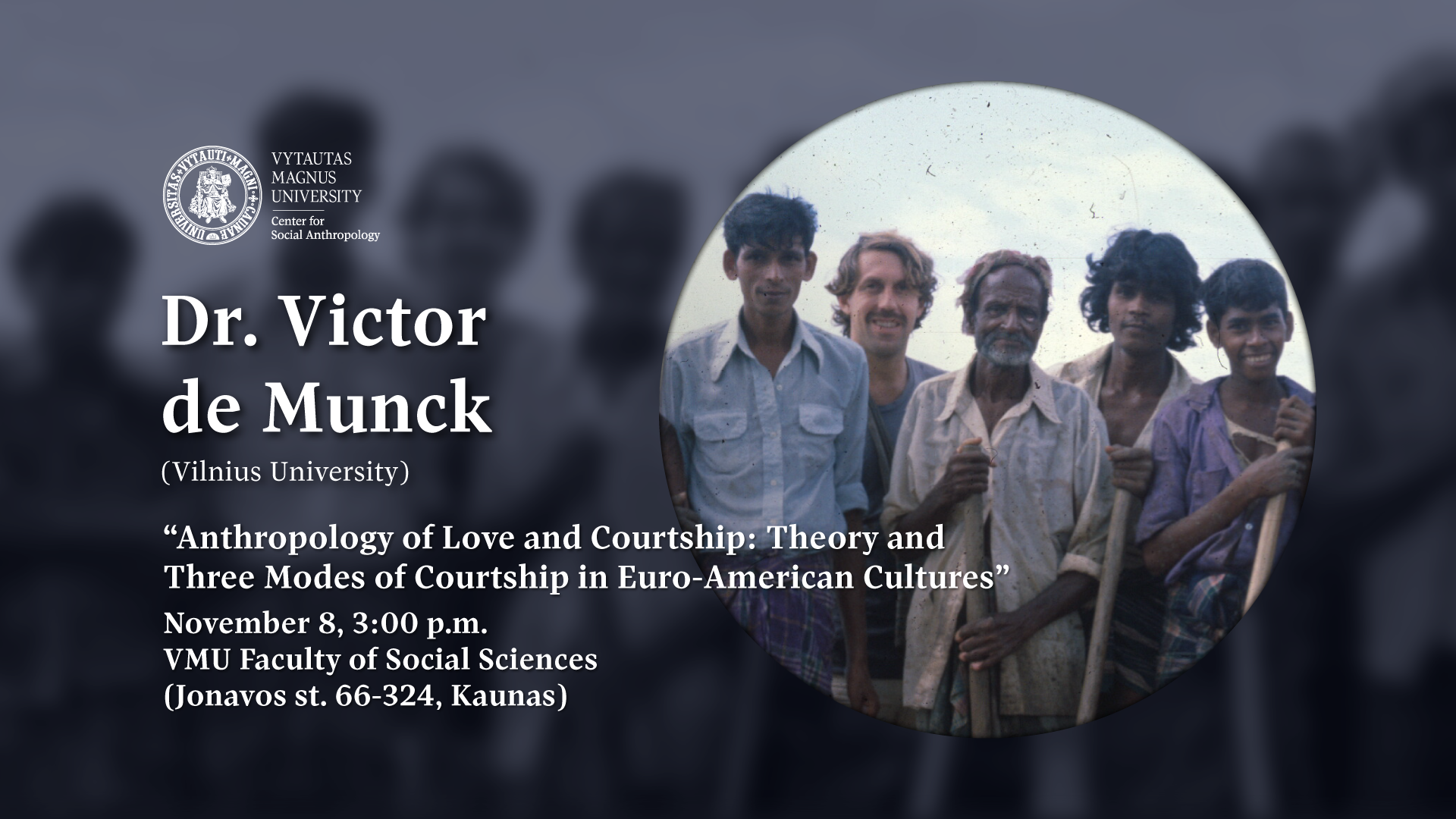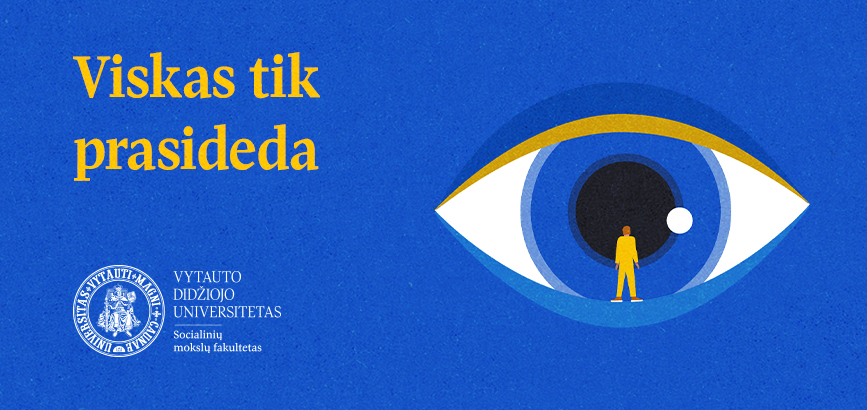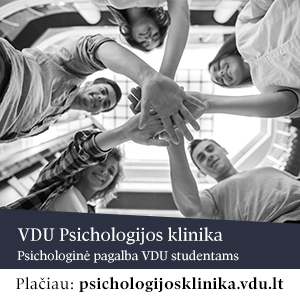Anthropology of Love and Courtship: Theory and Three Modes of Courtship in Euro-American Cultures

Welcome to the Center for Social Anthropology (VMU) research seminar series of the fall term 2024.
Research seminar “Anthropology of Love and Courtship: Theory and Three Modes of Courtship in Euro-American Cultures”
Presenter: Prof. Dr. Victor de Munck (Vilnius University)
Date: November 8, 3:00 p.m.
Location: Faculty of Social Sciences, Jonavos Street. 66, Room 324
About the lecture: I am using both affordance and cultural model theory to explain three different modes of courtship that we have found to be present cross-culturally.
Affordance theory has found a home in ecological psychology. It is based on the claim that our perceptions of the environment contain salient information that we can read in a variety of ways depending on our particular “effectivities.”
Affordances are what evolutionary psychologists refer to as dispositions except that these dispositions are limited to our reading of the immediate environment. Affordances are mysteriously encoded as ‘fast reflex memory triggers for action.’
The affordance need not be shared but only triggered if the person has the appropriate effectivity to use it to their advantage. Thus, skis are an affordance to someone who skis but not to someone who doesn’t.
Cultural models on the other hand are shared across members of the culture. They work as interpreter guides that help us navigate our way through life.
In this presentation I will show how affordances and cultural models complement each other in the analysis of courtship practices in the Euro–American cultural region where we can safely say that love is the main basis for marriage.
We have found three different modes of courtship. Courtship is conceived as the normative means by which people meet each other, become attracted and go through a normative sequence of events that lead to marriage.
About the author: Victor de Munck is a noted professor of anthropology, known for his work in cognitive and ecological anthropology, he has conducted extensive fieldwork in Sri Lanka, Lithuania, Macedonia, Russia, and the United States.
His research centers on cross-cultural analyses of romantic love, cultural identity, and social norms, often exploring the deep psychological and cultural frameworks that shape human behavior.
De Munck is also recognized for integrating both quantitative and qualitative methods in his studies, aiming to merge scientific rigor with humanistic insights in anthropology. He believes the field lacks a scientific foundation, where systematic methods could verify findings across studies. To him, while interviewing and surveys offer some structure, they fall short of capturing the depth of participant observation—a method requiring immersive, long-term engagement with communities. As De Munck writes: „One becomes a member of the community to be able to perceive and experience the outside world through their cultural lenses.
Few anthropologists do this these days.” Prof. De Munk likens anthropology’s mission to physics, where uncovering „universal laws” might illuminate hidden cultural rules across societies. „Many of these rules are internalized below the surface of consciousness and only recognized when they are violated. we need to voyage to these below conscious mechanisms that make us who we are”, writes De Munk.
- Bendruomenė
- Fakulteto vadovai
- Pradžia
- Priėmimas
- Sociologija ir antropologija (Visuomenės, kultūros ir komunikacijos specializacija (anglų k.))
- Stojantiesiems
- Visi renginiai
- Visos naujienos
- Fakultetas
- Mokslas
- Katedros
- Sociologijos katedra – senas dizainas
- Studijos
- Socialinio darbo katedra – senas dizainas
- Tarptautiniai ryšiai
- Kontaktai














